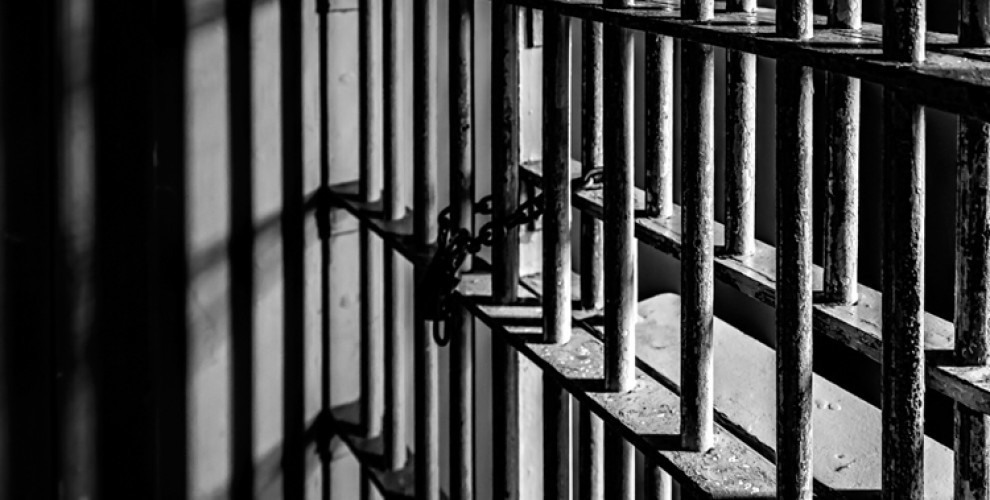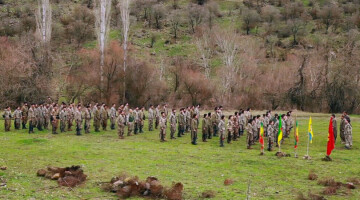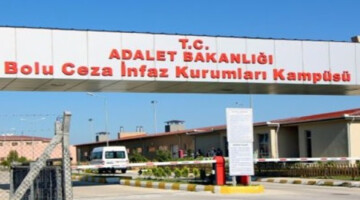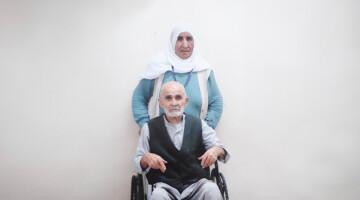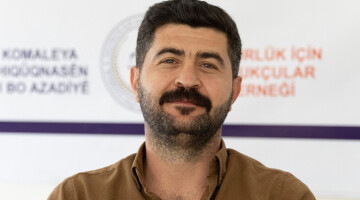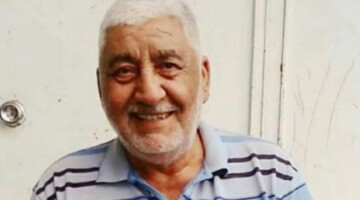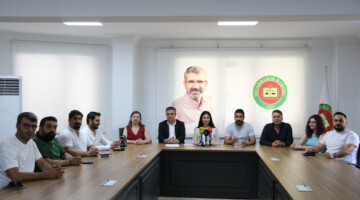HDP Commission on Prisons issued an urgent call to the international institutions including the United Nations, the European Parliament, the European Commission and their rapporteurs on torture and human rights; the political parties from the world; and embassies regarding the alarming levels of torture and ill treatment in Turkish prisons.
We publish the report by the Peoples’ Democratic Party (HDP) Commission on Prisons.
“Urgent Call: Turkish prisons have evolved into torture centers!
As President Erdoğan and his ultranationalist allies are gradually building a dictatorial rule under conditions of emergency rule, militarization and populist nationalism, prisons and detention centers have become key areas for brutally oppressive government policies. Since the ruling AKP came to power in 2002, prison population has dramatically increased in the country. Following the abortive coup in 2016, grave human rights violations have become even more rampant and massive arrests have filled Turkish prisons with countless political dissidents. According to Şaban Yılmaz, Turkey’s Director General of Prisons and Detention Houses, as of 7 February 2018, the population of Turkish prisons reached 235,888, while the capacity of prisons in Turkey is sufficient to host 208,830 prisoners. Around 50,000 of these prisoners are charged with political crimes. Various reports and observers have indicated that arrests by a judiciary that is under direct control of the executive serve as a political tool to paralyze or destroy the democratic opposition in the run up to the presidential elections.
Over-population is not the only problem in prisons.
Prisoners are physically abused on a regular basis. Prisoners are beaten up and sometimes killed, when they refuse to roll-call standing up, give military salute, reject strip searches, or ask to see a doctor.
The most recent dreadful death was that of Ulaş Yurdakul, a Kurdish man who was sleeping on a mat under the stairs due to lack of space. Prisoners and prison guards beat him up regularly. Eventually, he was beaten to death.
There are audio records of lynching prisoners who bragged about how the guards covered up their crime and how they managed to kill “a terrorist” without having to do military service.
Terminally-ill prisoners are other victims of the failing prison system in Turkey. Even though there is not death sentence in Turkey, many prisoners die in prisons as they are not treated properly or are denied hospital visits.
Celal Şeker, who was ruled to be ‘unfit to stay in prison’ by many medical authorities, died in prison after a heart attack. Murat Saat, sentenced to aggravated life sentence 21 years ago, also died due to lack of medical services.
Ahmet Bayar, arrested for attending a protest, died 3 months after his release. Bayar would have survived longer if he had received cancer treatment in prison or released earlier.
Seyran Demir, a young woman prisoner with leukemia, has lost all of her teeth and currently weighs 35 kilograms. If Demir is not treated in a proper hospital, she will most likely die in prison as well.
Sise Bingöl, 78, was jailed for ‘making terror propaganda.’ Bingöl, an elderly Kurdish woman with many diseases, may face the fate of many other sick prisoners. There are countless similar examples.
Prison guards and staff are encouraged with impunity.
In February 2018, alarming news about the torture of prisoners have come from many prisons across the country. In some prisons torture and ill treatment have peaked and become routinized. In particular, Elazığ Prison, Bursa H Type Prison, Rize Kalkandere L Type Prison, Tarsus Prison Complex, Sincan Prison and Balıkesir Kepsut Prison are centers where torture and ill treatment of prisoners by prison staff and guards is met with total impunity.
In an exemplary case in the last week of February 2018, prison guards ordered the prisoners in Bursa H Type to do a roll-call standing up and give a military salute beforehand. When prisoners, most of whom are jailed HDP officials, refused to do so, they were first cuffed in the back and then beaten up brutally, and then kept in solitary confinement with their hands cuffed in the back for eight hours. The same practice happened also in Rize Kalkandere L Type Prison and around the same time. Prisoners, including many HDP officials, were first beaten up and then received communication penalties (they will not be able to have phone calls and visits from family members for 2 weeks). Many prisoners with broken bones and fractures resulting from the beatings were denied hospital visits.
Government officials remain silent to any dialogue attempt.
As our deputies and officials receive allegations on human rights violations in prisons, they first attempt to talk to relevant ministers or officials. However, they are either left without a response or face complete disregard despite severe and shocking allegations. Not a single prison guard or staff has been removed from his/her position for using violence against prisoners, while many prisoners have received extra punishment for demanding to file a complaint on torture or ill treatment they face.
As if prison conditions are not already bad, the government has decided to impose prison uniforms on those charged with “terrorism,” a broad and ambiguous term in Turkey that includes almost any dissident voice – politicians, members of parliament, mayors, activists, human rights advocates, trade unionists, journalists, intellectuals, academics and the like. If the government implements this decision of imposing uniforms, it is most likely that Turkey’s prisons will become extremely tense spaces of violence, torture and death. Political prisoners have expressed strong commitment to resisting this decision.
We call upon all democratic and human rights institutions and relevant international entities to urgently take action against alarming levels of torture and ill treatment in Turkish prisons.”

